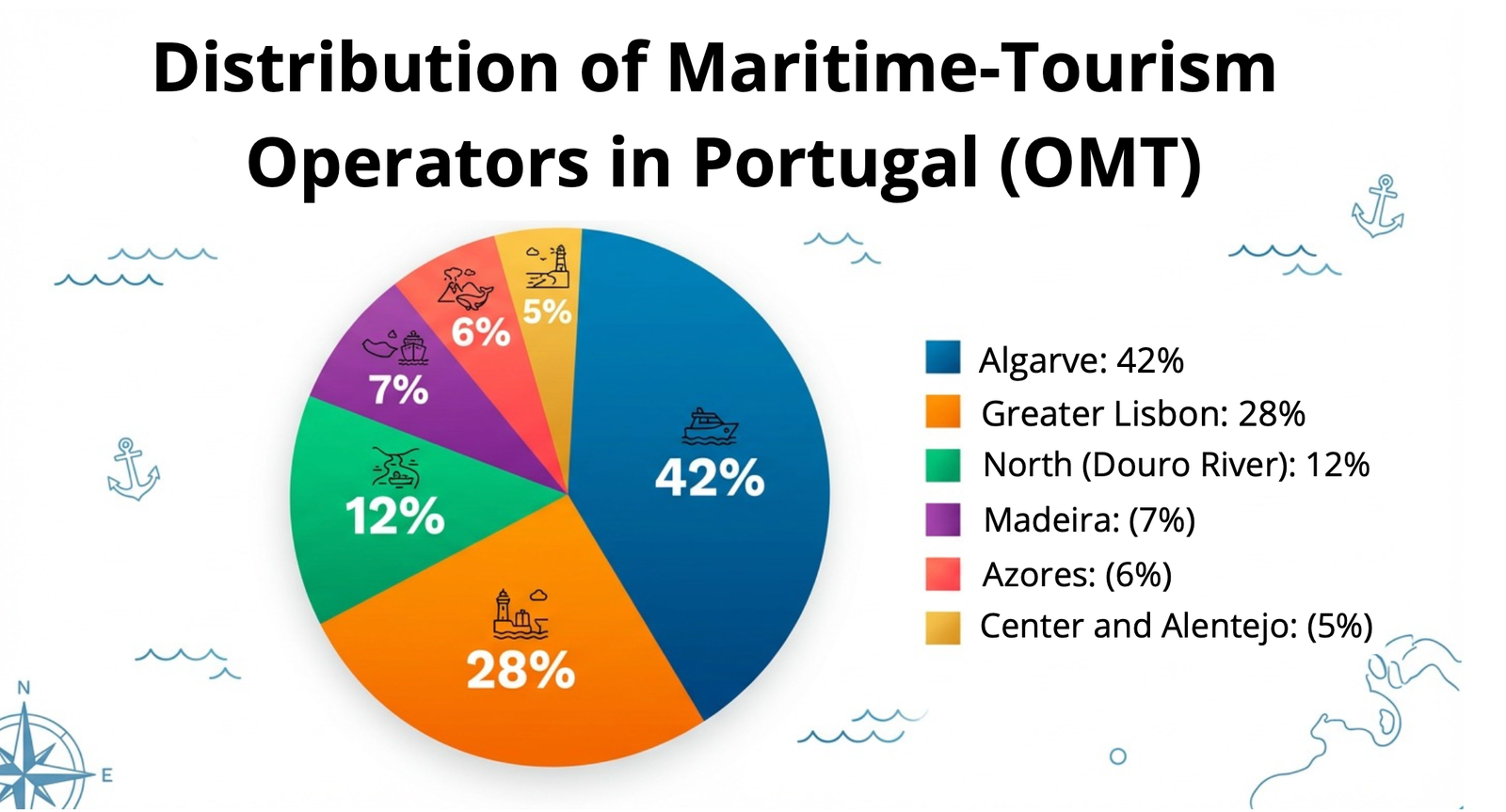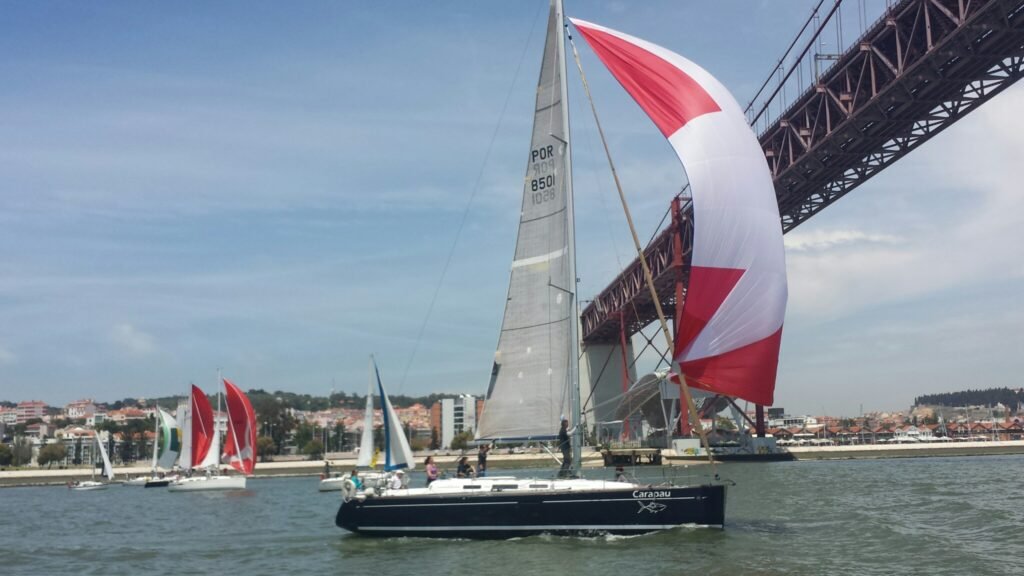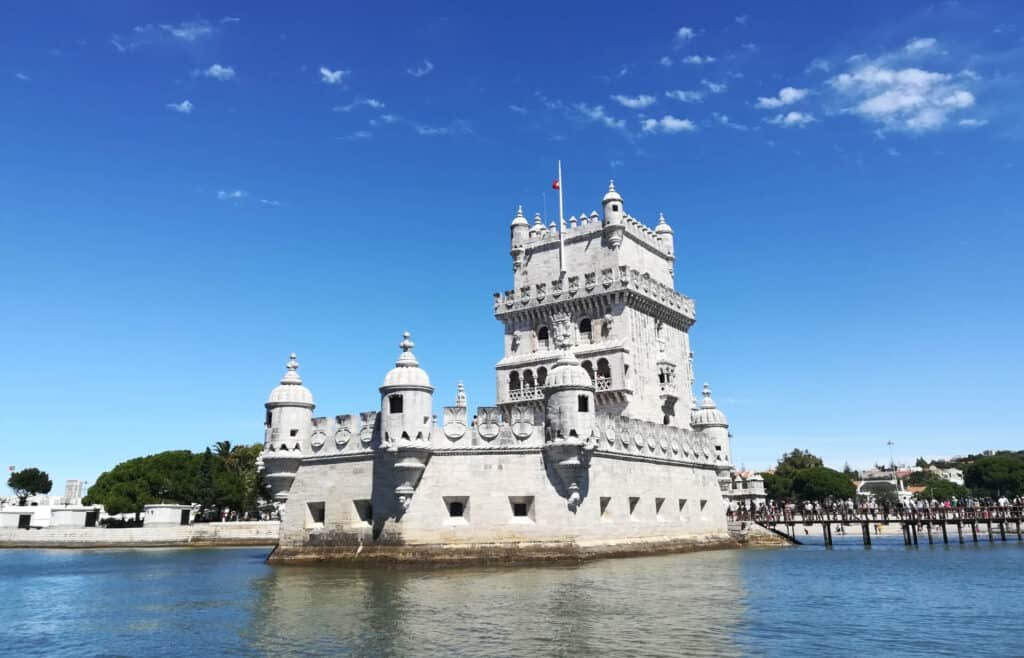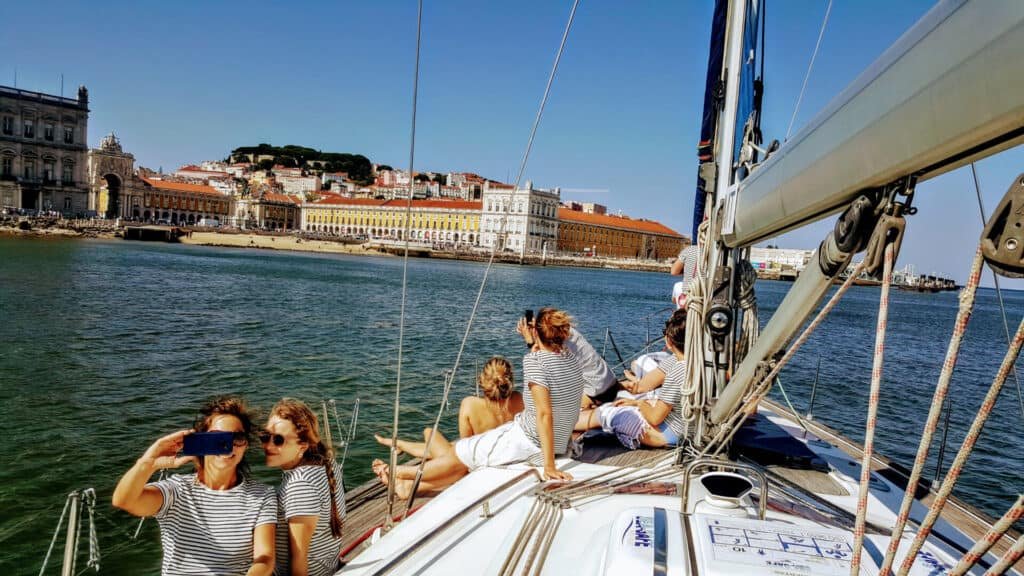Nautical tourism, which stems from sports tourism, focuses on activities linked to the aquatic and maritime environment. Divided between leisure and competition, this sector encompasses three major segments: cruises, recreational boating and maritime tourism activities (Freitas, 2010).
Growth and Economic Impact
According to TNEWS (2024), in 2023, “three out of four travelers who participate in outdoor activities considered them essential to their trip,” reflecting the growing preference for vacations linked to nature tourism, such as boat trips and land-based activities (ICNF – Instituto de Conservação da Natureza e das Florestas). This trend arises from the change in people’s behavior when it comes to managing their free time and the desire to escape from routine.
Portugal continues to stand out internationally in the tourism sector, with increases in 2024 of 4% in overnight stays, 5.2% in the number of guests and 8.8% in tourism revenue compared to 2023, reaching 27.7 billion euros in revenue (Turismo de Portugal, 2025).
Nautical tourism is following this trend, driven by major international competitions such as The Ocean Race (formerly the Volvo Ocean Race) and the Tall Ships Races. This segment has a strong impact on the local economies of coastal towns, boosting hotels, restaurants and other tourist services.
Technological innovations in nautical tourism
Technological advances have boosted nautical tourism, with the emergence of online booking and payment platforms, improvements in boat safety and efficiency, greener engines, navigation apps and boat rental systems. These innovations have attracted more and more tourists looking for more sustainable and responsible tourism options.
As part of its 2027 Strategy, Turismo de Portugal has made it a priority to transform the country into a Smart Destination, accelerating innovation in nautical tourism through digital resource management, personalization of the tourist experience and the adoption of sustainable technologies (Turismo de Portugal, 2017). This approach aims to make the sector more competitive, efficient and aligned with the new demands of travelers.
Sustainability in the Nautical Sector
Nautical tourism has been adopting more sustainable practices, driven by the growing concern of tourists to reduce their ecological footprint. Companies are investing in electric or hybrid boats and promoting activities in line with local environmental guidelines.
The Port of Lisbon stood out as the first in Southern Europe to join the EPI network, monitoring ship emissions to encourage more responsible practices (Port of Lisbon, 2025). In Portugal, ports such as Lisbon, Leixões and Matosinhos follow “green port” practices – a concept that promotes the adoption of environmental practices in ports, requiring significant investments to ensure greater sustainable competitiveness (Vega-Muñoz, Salazar-Sepulveda, Espinosa-Cristia, & Sanhueza-Vergara, 2021).
International research proposes integrating renewable energy sources into ports, such as solar, wind and wave energy (Vega-Muñoz et al., 2021). These initiatives further strengthen environmental competitiveness and drive more responsible practices in nautical tourism, with examples such as the Click&Boat platform, which promotes the efficient and sustainable rental of boats.

An analysis of the actual distribution of maritime tourism operators in Portugal reveals a strategic concentration that follows not only the coastline but, above all, the maturity of tourist destinations and the type of product offered. Although the general tourist activity register provides a macro view, it is in the strictly maritime segment that we observe the greatest regional disparities (TravelBI, 2025).
The Algarve leads with around 42% of the national share of maritime tourism operators (RNAAT/TravelBI, 2025). This dominance is justified by the diversity of the offer — from recreational boat rentals in marinas such as Vilamoura to tours of the Benagil caves —, as it is the region where the sea is the central economic asset of tourism (TravelBI, 2025).
In second place, Greater Lisbon accounts for approximately 28% of operators (RNAAT, 2025). Here, the market is marked by a strong lifestyle and events component, with a
high density of small and medium-sized boats. This region benefits from the centrality of the capital and a constant flow of city break tourists (TravelBI, 2025).
The North, driven by the Douro River, accounts for around 12% of operators (APDL, 2025). It is important to note that, although the percentage of companies is lower than in Lisbon or the Algarve, passenger density is much higher. According to the most recent data, the 110 operators registered on the Douro Waterway generated a record 1.37 million passengers in 2024 (APDL, 2025). This business model focuses on large-capacity vessels, such as hotel ships, which mainly serve premium international markets such as the US, UK, and Germany (APDL, 2025).
In the Autonomous Regions, the distribution reflects geographical and biological specialization:
Madeira (~7%): A consolidated market with year-round operations, focused on catamaran cruises and marine wildlife watching (RNAAT/TravelBI, 2025).
Azores (~6%): A niche focused on nature tourism and sustainability, with an emphasis on whale watching (Regional Government of the Azores/TravelBI, 2025).
The remaining regions, including the Center and Alentejo (~5%), show growth potential in inland waters, such as Alqueva, and in nature hubs such as Peniche and Setúbal. This distribution confirms that success in the sector depends on the ability to attract foreign markets, which already account for more than 65% of demand for these activities (TravelBI, 2025).
The Future and Prospects of Nautical Tourism
Nautical tourism in Portugal should continue to grow, driven by technological innovation, sustainability and the diversification of experiences. New tourist motivations following the Covid-19 pandemic have also helped to accelerate this development.
Despite the good prospects, it is essential to ensure that boats become increasingly accessible and diverse, facing challenges such as pressure on coastal infrastructure and the need for sustainable management of marine resources (Sardinha, 2025). Adopting responsible and intelligent tourism strategies will be crucial to protecting ecosystems and ensuring the quality of life of local communities.
In Portugal, nautical tourism is considered to be an engine for boosting tourism, as part of the enhancement of the territory defined by the Tourism Strategy 2027 (Turismo de Portugal, 2017). In addition, the aim is to improve navigability conditions, modernize quays, create docking platforms for recreational boats and develop river infrastructures in the interior of the country (Lopes, 2022).
On the River Tagus, the future will involve balancing the tourism value of the estuary with the preservation of sensitive ecosystems. Climate and human pressures will require integrated management, sustainable innovation in nautical activities and strengthened environmental policies to ensure the long-term viability of the destination.

In summary, nautical tourism has evolved significantly, driven by innovation, sustainability and the search for new experiences. To keep up with this growth, companies must invest in technology and responsible practices. This sector has a strong impact on the local economy and strengthens the attractiveness of coastal destinations.






